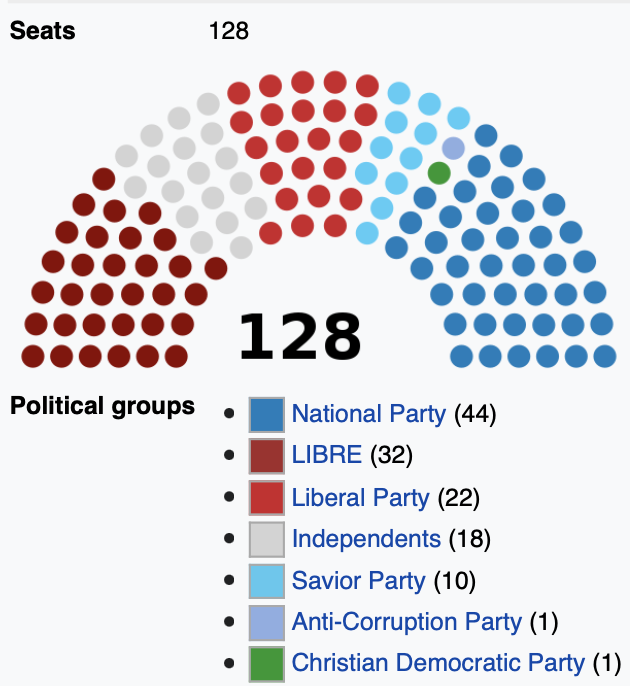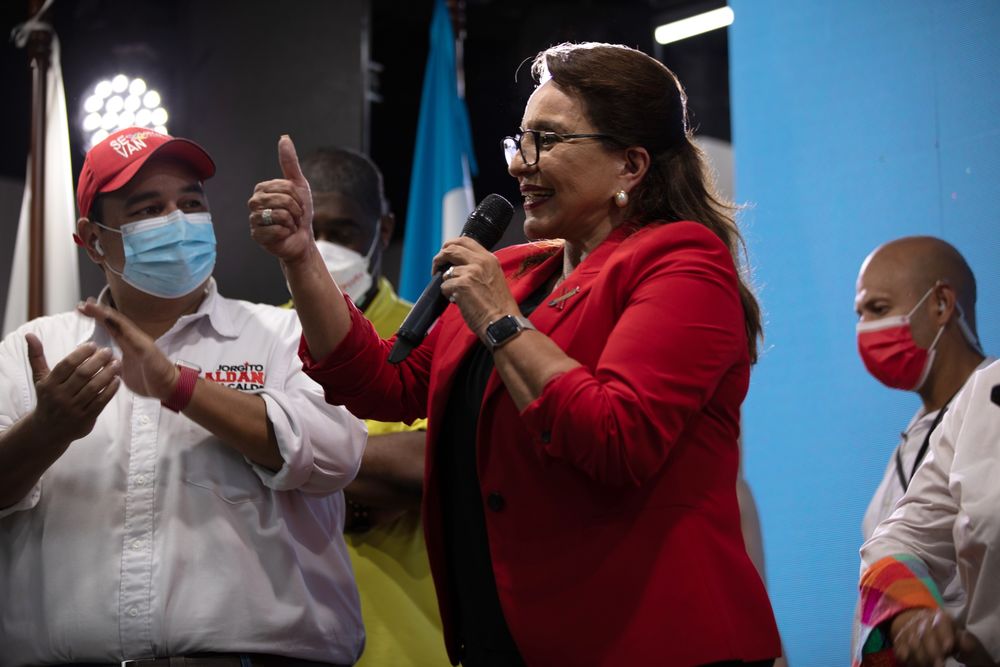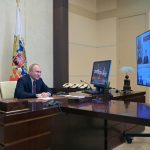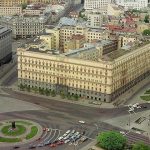A legislative crisis threatened to derail the government. Pressure has been growing to find a way out of a political impasse that resulted in two rival congressional leadership teams.
The first team is a pro-Castro supporters and the other is led by breakaway members of her own party, backed by the party of outgoing President Juan Orlando Hernández and another opposition party.
Honduras has been engulfed by a dispute over who will lead the newly elected Congress. Two congressional leadership teams have been selected and their standoff threatens legislative paralysis at a time that Castro desperately needs to quickly get to work addressing Honduras’ problems.
Several newly elected lawmakers from Castro’s Liberty and Refoundation Party, known as Libre, defected and elected their own congressional leader — Jorge Cálix.
Thus, a sizable bloc of deputies from her own Liberty and Refoundation party rebelled against her attempt to build a legislative majority by promising leadership of Congress to Luis Redondo, representative of the allied party of her vice president who had been agreed with her vice president to win his party’s support.
After that, Libre expelled 18 rebellious legislators. However, such step couldn’t solve crisis, because the party in Congress shrunk from 32 to 13 deputies, becoming less than a faction of Liberal party in the Honduran parliament. So, Libre became more vulnerable and has less voices than before crisis.

While Jorge Cálix promised to back Castro’s policies, most of his support came from the conservative National Party of outgoing President Juan Orlando Hernández — who has been accused by U.S. federal prosecutors of involvement with drug smugglers. After announcing Calix’s candidacy, President Castro offered him to be her Cabinet coordinator in an attempt to reunite the party. But there are doubts that this offer will be agreed by Jorge, who has a golden share in Honduran parliament now with his 19 congressmen.
As the result, neither of the leadership teams was chosen or installed legal.
That split threatens to give control of the legislature back to National and Liberal Parties that have traded the presidency for generations.
There is a high risk of provoking a legislative paralysis, where the initiatives approved by Cálix are vetoed by the president or not even considered, while Redondo’s team doesn’t have the necessary votes in Congress or lacks legality.
The crisis could extend to a third branch of Honduran government if the dispute lands before the Supreme Court, which is viewed as friendly to the outgoing National Party of Hernández and therefore distrusted by Hondurans who backed Castro.
The risk is that the continued uncertainty could deter badly needed international investments.
International support will be critical to Castro’s ability to start ruling a country suffering from soaring unemployment and high rates of violence.
High unemployment, persistent violence, corruption as well as troubled health care and educational systems are just some of the pressing challenges awaiting Castro.
The political schism has the potential to make it almost impossible for Castro to govern.
The dispute could be the result of interference from the outgoing Hernández administration and made it doubtful that Castro would be able to count on the full support of her party to resolve Honduras’ problems.
The National Party quickly tried to take advantage, issuing a statement offering to take them in — something that would immediately give it the biggest delegation in Congress if it occurs.
The standoff is an effort to weaken the legislative branch and divide Castro’s Liberty and Refoundation Party, better known as Libre. Behind all of this is not only the National Party or Liberal Party, but also part of the important economic powers of Honduras that have benefitted under previous governments.
A solution is in the choice of a third person to preside over the Congress. But in this case, there are doubts that Castro could drive her plan of government.The standoff also threatens Castro’s alliance with the Salvor Party of Vice President Salvador Nasralla, — Redondo is a member of it, — and raised suspicions that the outgoing government is trying to scuttle her administration before it can start.





